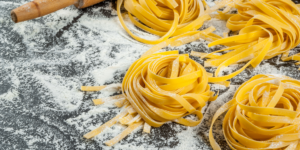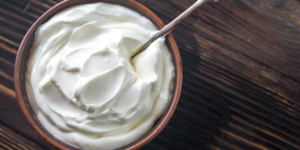Nutrition has to do with food and getting the right one to aid growth and health. It is generally important for everyone, but it is much more important for athletes or sportspersons. The types of food you eat can affect your physique, muscle mass, fitness, stamina, and overall body health. Healthy nutrition helps for better performance and faster recovery if you sustain an injury.
The ideal nutrition for an athlete is tailored to keep energy levels high enough to balance out the rigorous training and activities. This usually entails a good proportion of macronutrients, calories, and essential vitamins for maintaining the immune and other body systems. Foods like fish, avocados, oatmeal, milk, fruits, and vegetables give the best nutrition to sportspersons.
A typical example of how nutrition affects athletic performance is seen in child athletes. Child athletes who consume more calcium-containing foods are less likely to suffer from sports injuries. Other beneficial foods are those that contain carbohydrates and protein.

How does nutrition improve athletic performance?
An athlete’s lifestyle involves frequent and sometimes rigorous exercise, exposure to physical injury due to the nature of the sport, E.g., rugby, and finally, frequent traveling (for tournaments or games). Insufficient nutrients or a wrong balance of nutrients could negatively influence an athlete’s health and career.
If you do not have enough calories from carbohydrates, you will feel weak and perform poorly as a sportsperson. If you do not take sufficient amounts of proteins, your muscles will be weak and prone to more injury. For sports like weightlifting, a deficiency of proteins could affect the athlete’s ability to lift a given weight.
Food affects your concentration and alertness. In games involving teamwork such as football, athletes are required to be very alert for optimum performance. Evidence also exists that food affects your mental strength. The healthier your nutrition, the healthier your mental health, which is also required for rigorous activities like sports.

Nevertheless, nutrition varies from sport to sport. For endurance sports like cycling or distance running, carbohydrates and hydration are of top priority. Proteins are prioritized in more rigorous sports like weightlifting or boxing, followed by carbohydrates. This is because proteins have beneficial effects on muscle health. Meanwhile, gymnasts will be more concerned about their bone health.
While a gymnast may opt for a vegetable salad and a glass of milk, a weightlifter may opt for an avocado-egg sandwich (wholegrain bread) with a cup of Greek yogurt and nuts.
What foods should you eat before a workout?
Your meal before a workout should be well-planned for optimum athletic performance. If you intend to have an intense workout session, foods high in carbohydrates–and a good amount of them–are necessary. This gives your body enough glucose for rigorous activity and delays the onset of fatigue.
For example, if you were to exercise for an hour or more, about 3 slices of bread, or 2 cups of oatmeal or just a large banana will provide you with enough carbohydrates to get by.
Tip: Eat these foods one to two hours before working out to ensure your body digests and absorbs the nutrients beforehand.
For every extra 3 hours, double the amount of food eaten.

What foods should you eat after a workout?
Post-workout, another round of carbohydrates and fluid supplementation is important. This replaces all lost energy and water. For this, you may try another variety of foods like a cup of sweet potato or plain yogurt.
Proteins like lentils and fish are also beneficial for muscle growth and repair. Supplements could help with this, but getting your daily protein requirement from your everyday meals is also possible.
Water is essential before, during, and after a workout to prevent dehydration.

Nutrition and recovery
In sports, getting injured is not out of the question, whether during a game or while training. It is a possibility that you have to factor in as an athlete. And food has a role to play in the recovery process.
There’s no strict diet plan or food regimen that helps you recover faster from a sports injury. It varies based on the injury type and what works for you. But generally, 6 types of food should be included in your everyday meals for a shorter recovery time.
Proteins
If it’s a muscle injury, think protein. Protein is not just good for muscle growth but also very useful in muscle repair. Eating a healthy amount of protein prevents you from losing muscle mass in a particular body part that you cannot exercise due to injury.
If you have a broken arm, moving it, let alone exercising it, will be a hassle. This could lead to a loss in muscle mass, but if you make fish, chicken, eggs, nuts, milk, and other protein foods a part of your daily meal, whatever muscle mass you lose will not be so significant.

Fruits and vegetables
A good number of fruits and vegetables are immune-boosting, anti-inflammatory agents. When a person sustains an injury, the pain and swelling usually result from inflammation.
With fruits and veggies, this inflammation can be controlled and even reduced to the barest minimum.
Vegetables are also known to improve wound healing E.g cauliflower and carrots. The immune-boosting effect helps to maintain general body health. Your recovery would be complicated and even elongated if you were to get another sickness coupled with the injury.
These classes of foods also help with neuropathic pain.
Some beneficial fruits during recovery are citrus-containing fruits, strawberries, kiwis, pineapples, and blueberries.
Vegetables that promote your overall health include spinach, lettuce, ginger, garlic, and cabbage.
Starting your day with a fruit or vegetable salad is not a bad idea at all.

Fiber-rich foods
When you’re on holiday–albeit forced–and living a sedentary lifestyle due to injuries sustained, the chances are high that you will eat a lot more and gain a lot more weight.
Fiber-rich foods like oatmeal, lentils, beans, or artichokes help you with portion control. Instead of the frequent desire to eat, these foods give you a longer-lasting feeling of fullness. This way, you do not eat more than necessary, causing weight gain that could harm your recovery or athletic career.

Foods with zinc, vitamin D, and Calcium
If you have a bone-related injury, calcium and vitamin D are not optional…they’re essential.
While vitamin D aids the body’s absorption of calcium, calcium helps strengthen the bones and speed up the healing of broken bones. Vitamin D may also be useful in pain management.
Milk, white beans, sardines, salmons, okra, and kale are major foods containing these nutrients.
Zinc is associated with tissue healing so, for a faster healing process, a good amount of the mineral is required. Taking supplements is not advisable as this could cause other nutritional imbalances in the body. The best choice is to get it from food.
Zinc-rich foods include fish, nuts, and chickpeas.

Healthy fats
Avocados, salmon, olive oil, tuna, and almonds are great sources of healthy fats. Healthy fat helps cellular metabolism, inflammation, and growth of damaged tissues. All these effects cumulatively promote the healing.

Water
Water is not a food but it does have nutritional value, especially to an injured sportsperson. Water helps to flush out harmful substances in the body known as toxins. The more water you drink, the more urine you pass out. Without adequate water intake, these toxins could be concentrated in the body and cause secondary problems.
Water also helps distribute nutrients throughout the body, while keeping body organs hydrated and at optimum body temperature.

However, it may be important to check with your dietician to know the most suitable meal plan.
Summary
Nutrition is important for athletes. The right nutrition provides the athlete with all vitamins, minerals, and nutrients essential for training, competition, and recovery during injury. A good nutritional plan is not cast in stone and may vary based on the sport or individual athlete, goals, and preferences.











